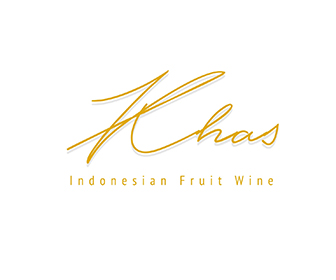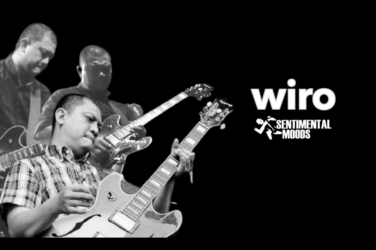Lately, the phenomenon of dance floors across Jakarta has barely made it into mainstream media headlines. There’s little coverage of how people lose themselves in music, sharing energy while they’re covered in herbal drink aromas, thick cigarette smokes and sweat. These spaces hold countless stories—workers escaping alienating routines, or simply celebrating music in deeply personal ways. Within these walls lies a unique message: a new journey for Jamaica-inspired sounds in Indonesia. The basslines and riddims still echo, carrying the pure joy!
And this is where Koddim Sound steps in, taking control of the stage. Behind the turntables/DJ Controller, microphone, and mixing consoles stand three figures: AK47, Deejay Gantung, and Risto—memory curators, atmosphere architects, and guardians of a sonic heritage rooted in Kingston’s streets but now resonating through Jakarta. It’s a manifestation of communal spirit, something almost gone or untold from Indonesia’s mainstream electronic music landscape.

For Koddim Sound, dubplate is the materia prima—raw material infused with narrative, emotion, and history. As AK47 puts it:
“With our current format, we really aim to make dubplates our identity in every performance.”
In sound system culture, a dubplate is an exclusive recording—a custom-cut track, often a modified version of a popular tune, tailored for a single crew. It usually features lyrics calling out that crew by name or sending a specific message. For Koddim Sound, this format becomes a “secret weapon”, an ontological statement of who they are, what they stand for, and how they control and rule the dance floor.
Deejay Gantung adds a hint:
“Connectivity. Every track or dub from Koddim Sound carries connectivity and exclusivity between us and the tune we play.”
It’s an intimate link between selector and sound. Risto chimes in: “The dubs we play at gigs might be the same, but the way we present them is never the same.”
Securing a dubplate is no quick fix. It’s a process that demands personal networks, negotiation, and even emotional diplomacy. Behind every vinyl cut or digital file lies a story of pursuit, waiting, and compromise.
AK47 recalls a near miss on a dub from one of their favorite tracks:
“Tight deadlines, the artist was on tour—it was a headache,” says Deejay Gantung.
Risto sums it up:
“Almost every dub comes with its own drama. And that’s addictive.”
When it comes to curation, personal taste outweighs market logic. Koddim Sound hunts for tunes that open new creative pathways. If a dub doesn’t click on first listen, they give it time—digesting the full arrangement, from instrumentation to the vocal message. Often, those slow-burn picks become unexpected gems—sonic artifacts that define their identity as a trio.
Although their roots are firmly planted in Jamaican music culture, Koddim Sound often brings dubplates into unorthodox spaces. At one non-Jamaican event, they dropped a dub that was brimming with cultural references. The crowd’s reaction was mixed—some caught the message instantly, others looked stunned. But as AK47 says: “We believe there’s always a first time for anything”
For them, this wasn’t failure—it was a necessary step. They believe originality itself is an act of resistance. AK47 insists most of their dubplates should only be experienced live on stage. If someone records and shares it, they see it as a form of respect—a shout-out to Koddim Sound.
Deejay Gantung frames it more philosophically:
“In the digital era, anyone can download their favorite song. But few are willing to go the extra mile. That extra mile is what makes the difference.”
Risto underscores that the spirit of Koddim’s dubs can only be felt in the moment, at their gigs.

In Indonesia, Koddim Sound has proven one thing: dubplates are more than just “music tools.” They’re the living texts—media carrying personal narratives and the threads of cultural resistance. They’ve taken a crucial step in showing that dubplates can deliver personalized messages, keeping alive the memory that this music is ours—and we hold absolute freedom to play it our way.
When asked what happens if dubplates one day become a mainstream trend in Indonesia, AK47 is optimistic. He hopes the echo reaches abroad, opening doors for cross-border collaborations and attracting international promoters to appreciate this movement.
Deejay Gantung answers simply: “Nothing to worry, fam.”
And if a living legend like David Rodigan ever challenged them to a soundclash? AK47 beams:
“It would be an honor, a dream to stand alongside Sir Rodigan. If that day comes, we’ll prepare Indonesian dubplates as our weapon—and introduce him to the sounds of our homeland.”
Deejay Gantung laughs: “Father Rodigan is too big, bro—no other sound can play like him!”
Risto closes with a grin:
“Let’s just meet first, have tea and talk.”
That answer captures the essence of Koddim Sound: a collective that knows when to play hard and when to let the music speak as a language that connects, beyond competition. On stage, dubplates are weapons; off stage, they’re greetings of solidarity. Winning or losing is just a moment—what lasts forever is the music.
(Teks:Keyko, Editor&Translation:Sam)





Show Comments